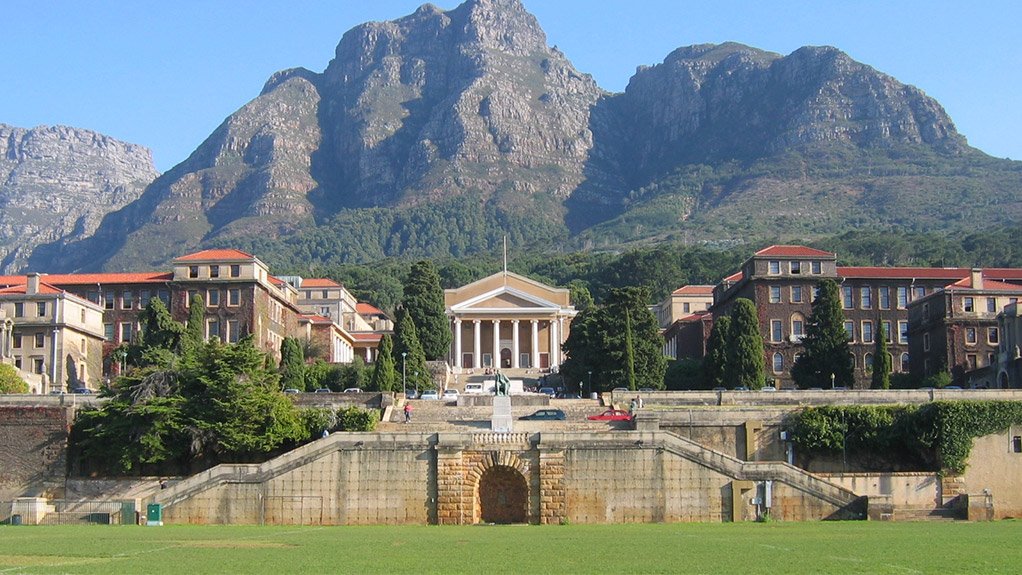Funding agency United Kingdom Research and Innovation (UKRI) and the Global Challenges Research Fund (GCRF) have selected University of Cape Town (UCT) researchers to establish research hubs at UK universities, to tackle some of the development challenges facing the world.
The hubs offer five years of large-scale funding to develop initiatives to make developing countries safer, healthier and more prosperous. The hubs are funded through GCRF, which is an initiative of the UK government.
UCT lecturers will be part of the UKRI GCRF Accelerating Achievement for Africa’s Adolescents Hub and the UKRI GCRF One Ocean Hub.
ADOLESCENTS HUB
The hub will be used to benefit African adolescents in various sectors such as health, education, employment and safety. The hub will determine the best combination of cost-effective and efficient services to best help the youth.
The adolescents hub will be led by an interdisciplinary team at Oxford University which will partner with universities from South Sudan, the Democratic Republic of Congo, Lesotho and Tanzania, as well as donors, NGOs, governments and the youth.
“By testing different combinations of interventions – such as parenting programmes, government-disbursed cash transfers, business skills and violence prevention – this hub will identify ‘accelerator synergy’ service combinations to boost nutrition, health, schooling, employment, gender equality and safety for teenagers across Africa. The goal is to provide policy-makers with the evidence they need to choose programmes that work and are cost-effective and scalable,” said UCT in a statement.
The hub also includes active capacity-building of 35 early-career academics in Africa and ten in the UK, including eight co-funded doctoral students and five postgraduate positions per year.
One of the three directors of the hub is UCT Psychiatry and Mental Health Department honorary professor and a principal investigator at Oxford University Lucie Cluver.
She said governments across Africa, as well as United Nations agencies and donors have faced fiscal and global aid challenges, rendering them helpless to help their adolescents to achieve the Sustainable Development Goals.
“This hub aims to meet their needs: to identify what simple combinations of services are cost-effective… Africa’s adolescents deserve the best evidence and the best opportunities,” she said.
Also involved with this research hub is UCT Department of Psychology academics professor Cathy Ward and UCT Centre for Social Science Research and the Department of Sociology’s Dr Elona Toska.
Toska says the hub will enable the cross pollination of ideas and approaches to analysis.
“The hub will be implemented as a close partnership between Oxford and UCT, building on longstanding existing research collaborations. The UCT team will help coordinate several of the hub’s work-packages, support with translating the generated evidence into practice, and co-lead adolescent involvement in the hub’s work,” she said.
ONE OCEAN HUB
The University of Strathclyde will lead the One Ocean Hub and collaborate with over 50 partners, including research centres, development organisations, community representatives, national and regional governments and multiple United Nations agencies.
The hub will tackle how the world responds to the challenges facing its oceans and unify those most affected by the ocean degradation to current solutions, which are disconnected in law, science and policy.
The hub also aims to integrate government frameworks to balance multiple ocean uses with conservation, with a particular focus on South Africa, Namibia, Ghana, Fiji and Solomon Islands.
“The hub strives to empower the communities, women and children most reliant upon the oceans to inform decisions based on multiple values and knowledge systems. It will investigate how to share fairly and equitably the environmental, socio-cultural and economic benefits of ocean conservation and sustainable use.”
The five UCT researchers to be co-investigators in this hub are Department of Biological Science’s Dr Lynne Shannon, Department of Commercial Law’s Dr Tobias Schonwetter, Department of Environmental & Geographical Science’s Dr Philile Mbatha, Associate Professor Merle Sowman and Associate Professor Rachel Wynberg.
“The hub is a direct response to the call to create ‘knowledge hubs’ made at the 2017 United Nations Ocean Conference on Sustainable Development Goal 14: life below water. It seeks to generate new knowledge, facilitate the sharing of scientific data, best practices and approaches to enhance use, development, governance and benefit-sharing of our oceans,” said Sowman.
The outcomes from the hub will be shared internationally.
EMAIL THIS ARTICLE SAVE THIS ARTICLE ARTICLE ENQUIRY
To subscribe email subscriptions@creamermedia.co.za or click here
To advertise email advertising@creamermedia.co.za or click here











